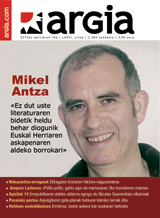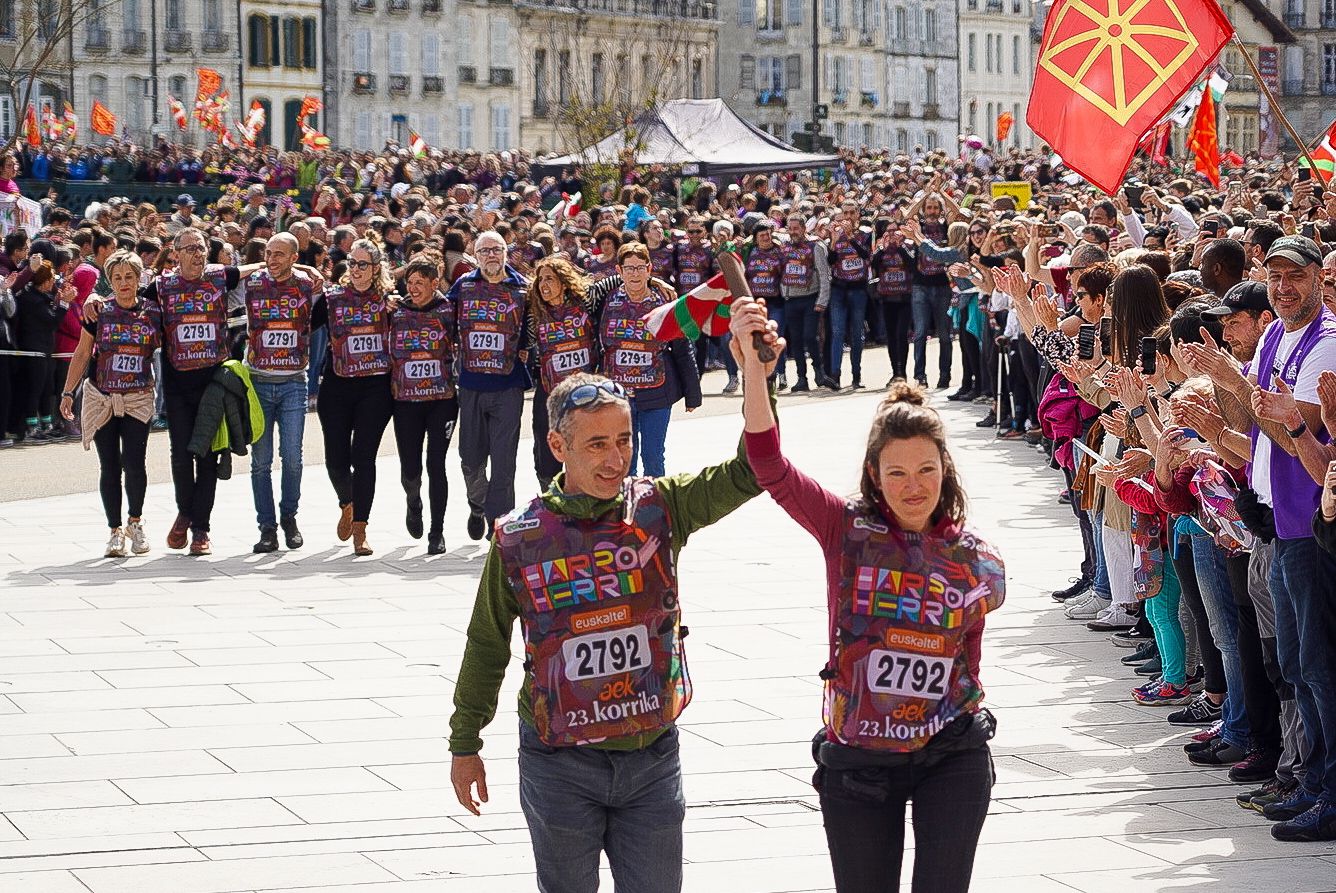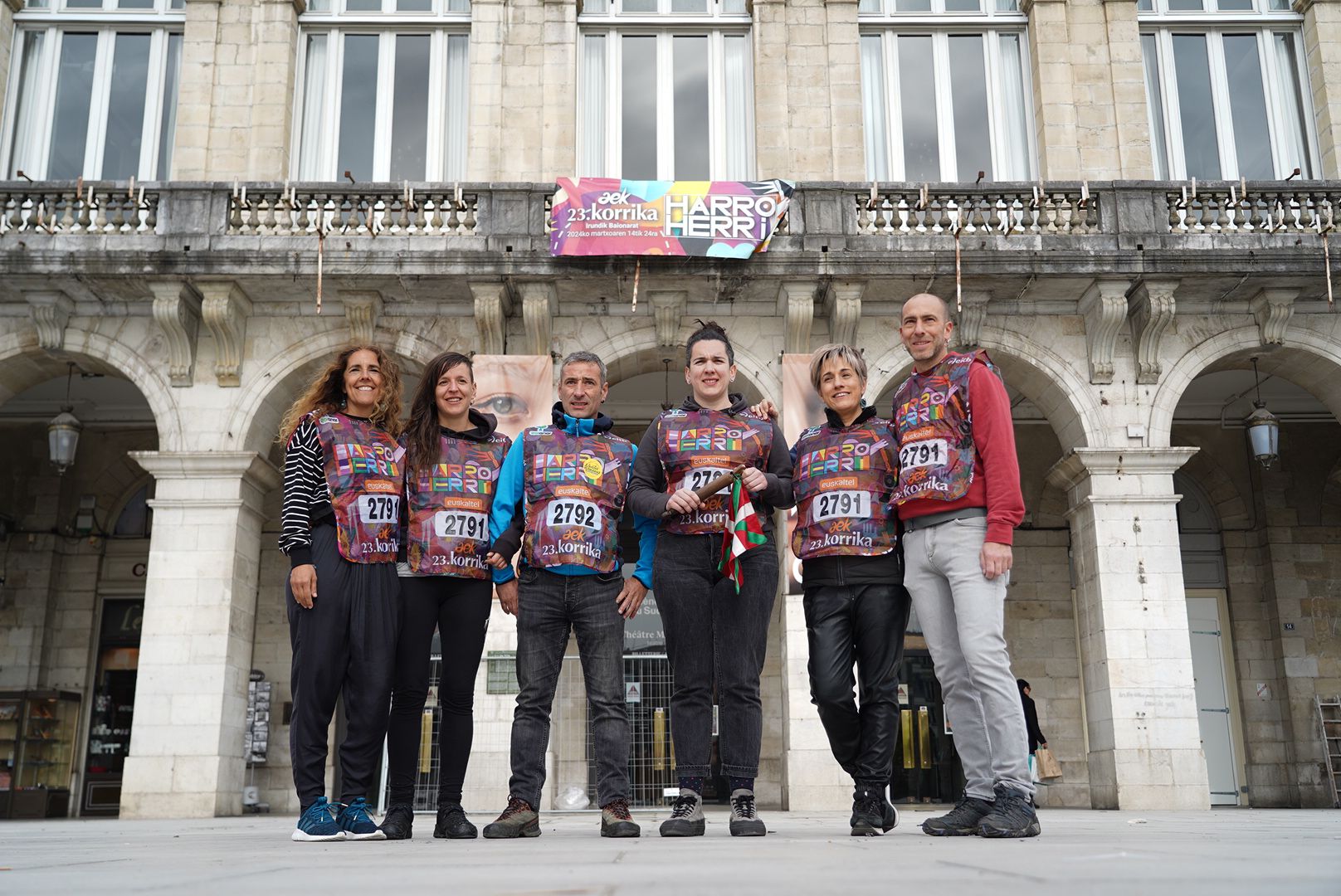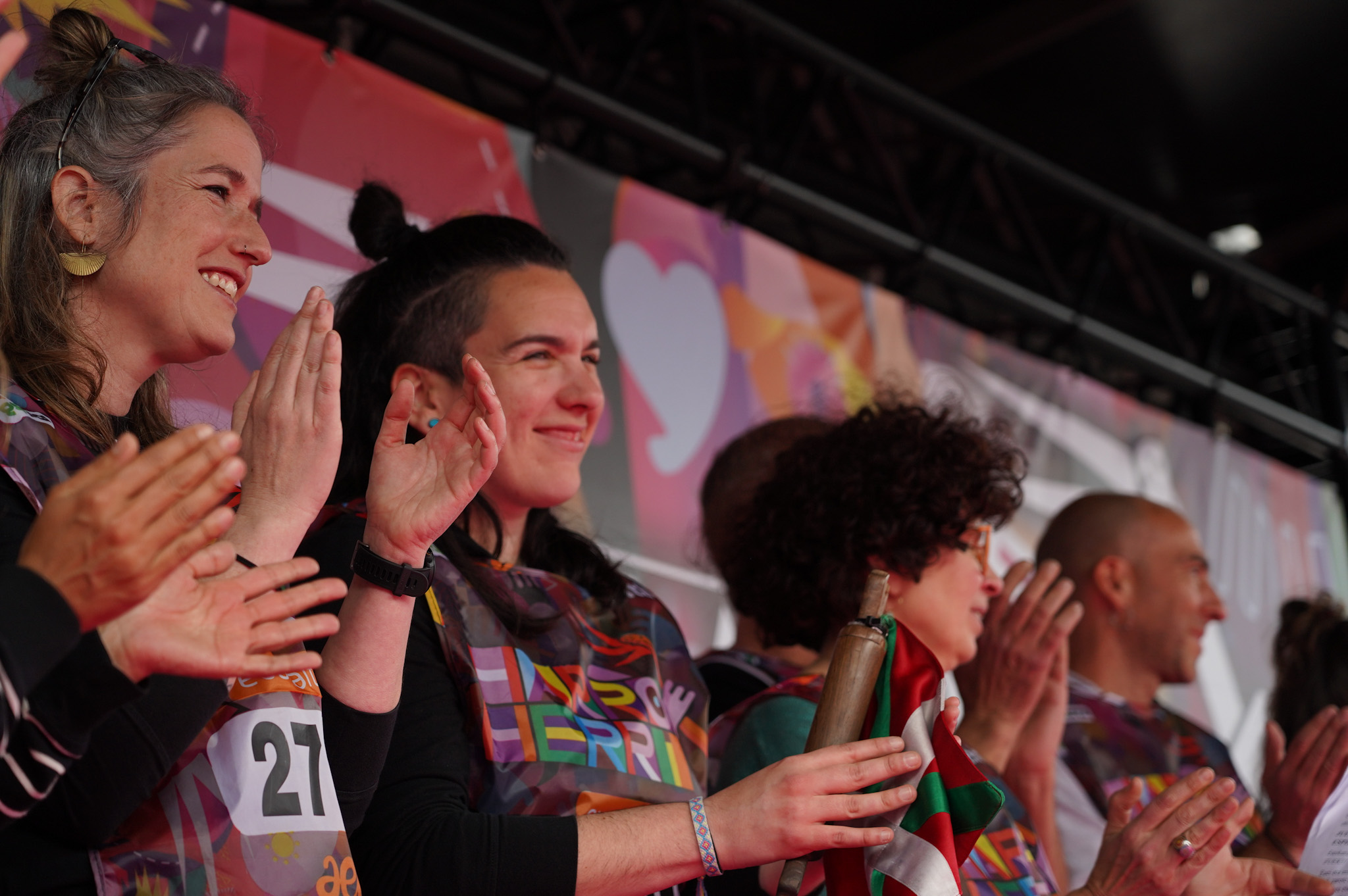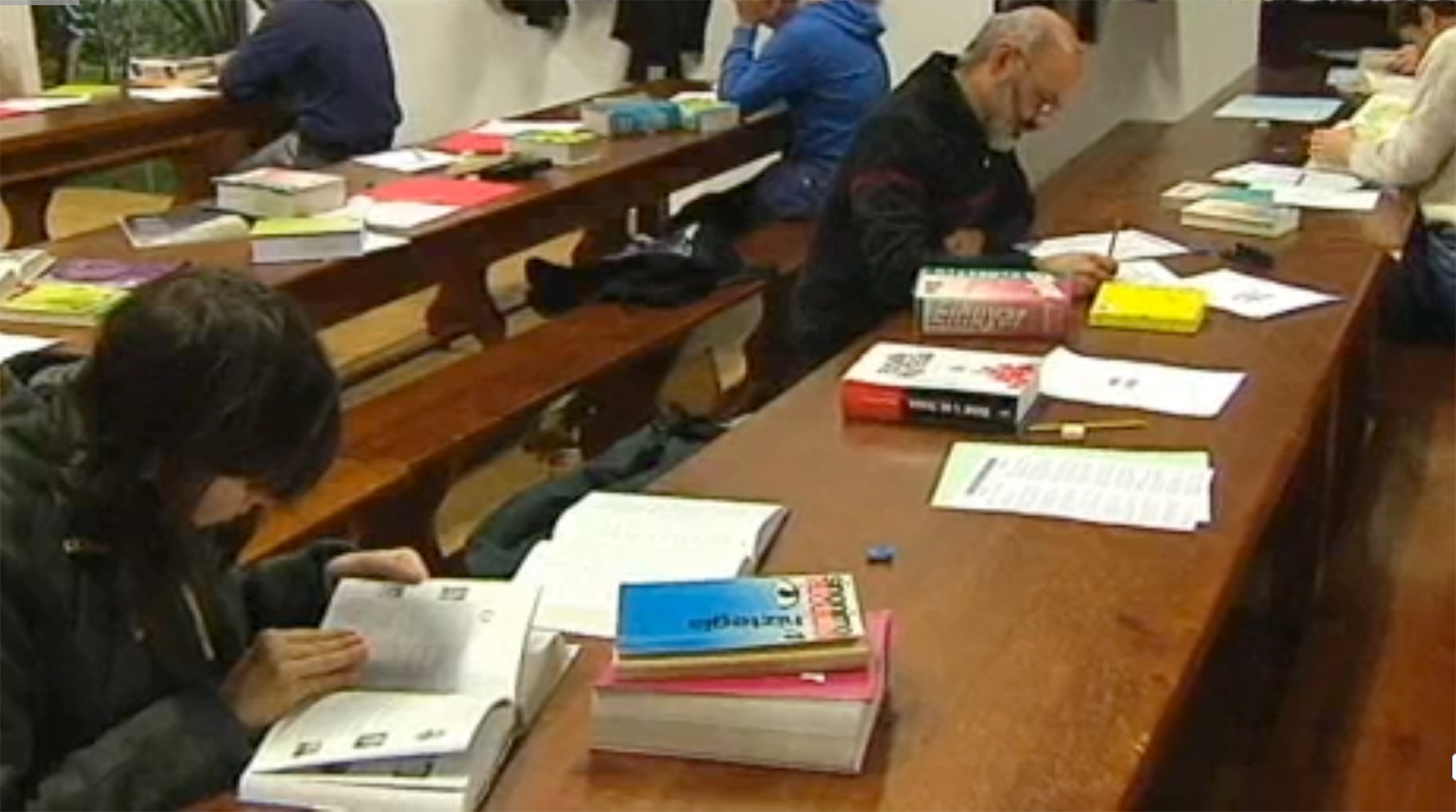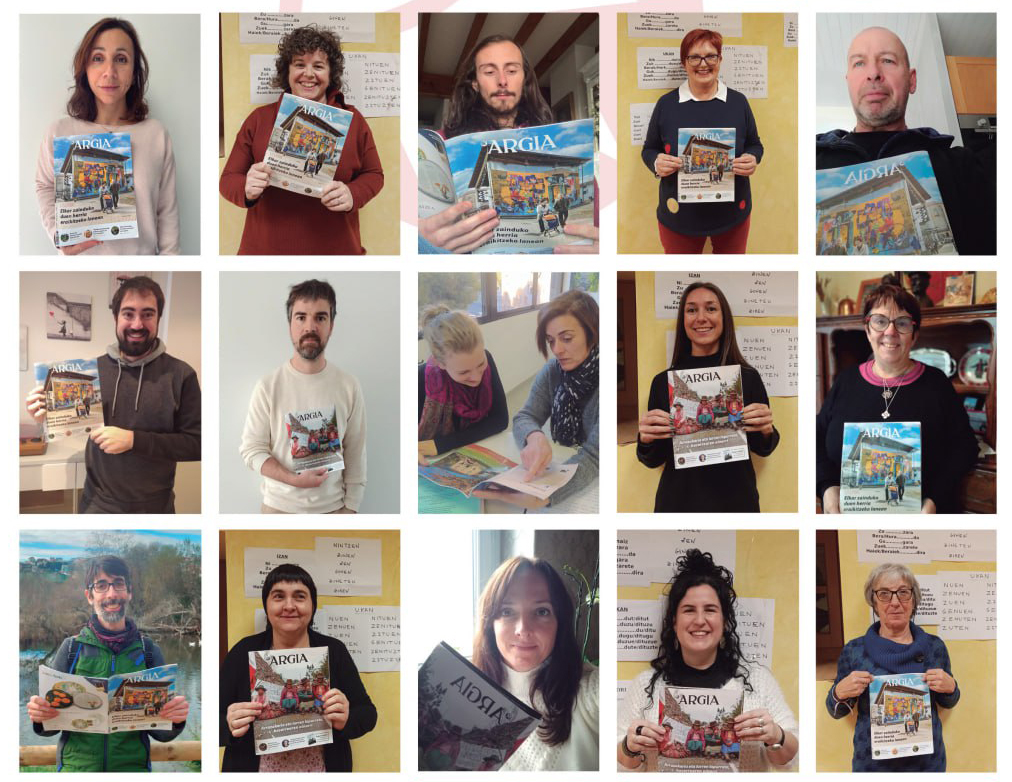The time to approach the Basque after years
- In Euskal Herria there are more people who do not know Euskera than those who know it. Many outsiders have been with us for many years, but they have not learned the language. Some have taken part in this task after inhabiting it there. We have met some of them in the course of Urnieta of the Banaiz Bagara association.
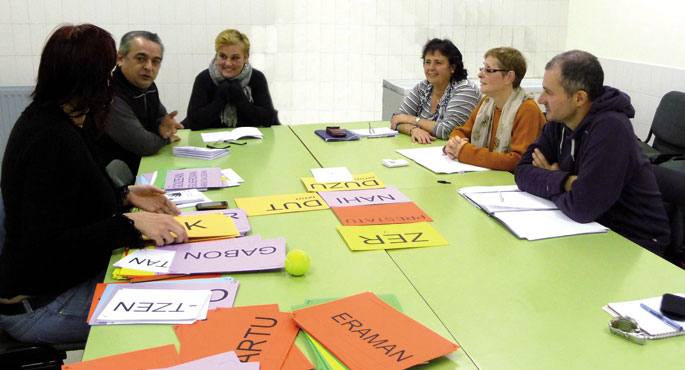
In the years when our society was far from the economic crisis, Juani Martín left behind his homeland, Badajoz (Spain), to move to Gipuzkoa. Since then it has been around 40 years and today he lives in Urnieta with his family. Learning Euskera was something that remained to be done in these years, and two years ago she began attending the course that the Banaiz Bagara association offers in the village. Santi Sánchez will celebrate two years in spring in the same year. It is also extremeño, natural from Cáceres, and came to Urnieta 36 years ago. He previously resided in several municipalities of Gipuzkoa for six years.
They both remember the situation of the Basque Country when they visited us. “When I arrived here, you couldn’t speak in Basque. In Urnieta, only the baserritars did, and there were few,” explains Martín. “Yes, they came down to the village with the milk of the farmhouse,” adds Sánchez.
Her classmate is Marivi Sánchez Herrero. He was born in Salamanca, but at nine months he was transferred by his parents to Donostia-San Sebastián. He grew up in the farmhouse and studied at the public school of the time. Then he married a Basque, but did not learn Basque. This is not the first effort to assimilate the language: “Twenty years ago I studied Basque in San Sebastian. It was going well, but because of the schedule I had to leave it. Now I want to learn again, even late.”
“I spent a year at AEK learning Basque for a long time,” explains Jesús López attending the course. I walked in at seven in the morning and got out of work at seven in the afternoon, and that was a sacrifice. I left it. Now that I’m free, I’m learning again.” Also, Martín has had time to hinder the learning of Euskera: “I wanted to learn since I came here. So far I haven't had time for work and now, when I retired, I want to study. But I see it difficult.”
Learning to speak
In the course of Banaiz Bagara, they learn to speak in Basque, internalizing words and phrases that can be used in everyday situations. “I like more than learning to write this method or grammar. I think it’s easier and I think it’s best learned,” said Sánchez Herrero.
In her weekly activity, Petra Elser is not the only teacher, as, despite her doubts, anyone answers. Martin composed the phrase “I want to prepare hake” and López asked him immediately what hake is. When answering the question “What do you want to buy?”, Daniel Oholeguy has doubts. He doesn’t know what “buy” is, but Martín and López answer right away: Buy.
Students still have a tendency to Spanish, but that is not an obstacle to moving forward. Being stuck with a specific word, Elser asks students to write it in Spanish and to complete the sentence, since knowing how to make a sentence is more important than knowing a given word.
In addition to in the classroom, they find it difficult to speak in Basque outside of it. Sánchez Herrero, for example, tries to speak in Basque wherever he can, both at home and on the street, and recognizes that it is easier to work with children. Martin is of the same opinion: “The children speak to you right away and in short words.” However, when speaking on the street, she says she gets confused and blocked. Since he began to learn Euskera, some have done so from time to time “but little by little”. In the case of López there are also Euskaldunes friends who now speak to him in Basque and he prefers. Sanchez, for his part, the person who encouraged him to enroll in the Basque course has since been in Euskera, but asks him to stay blocked and repeat what he said. “You’re a little scared because you don’t know what he’s told you,” he says.
However, daily reality shows them that they are internalizing the language: “I didn’t know anything before, ‘yes’, ‘thank you’ and much more. Now I know a lot of loose words, I don't have the ability to follow a conversation, but I understand a lot of things. On television, for example, I didn’t understand anything before and now that I know a few words, I know what he’s talking about,” Sánchez explained. So she tells her husband what she's understood, with excitement.
Language received at school
In their homes there has been little Basque talk, but as in many other cases, the children have learned in school. However, the age has much to say, as in a few years the situation has changed. Sanchez, for example, has two daughters, one 35 years old and one 30 years old. Both attended public school and the oldest had only one subject in Euskera. The minor studied bilingual and had half of the subjects in Basque. So, you may understand, but Mom thinks you're not able to talk. The sons of Martin studied in the ikastola and know very well Euskera. At home, they also speak in Basque from time to time. The de López are younger and take advantage of their knowledge to practice Basque: “Now I’m forced to speak in Basque.”
Although the lack of use of Euskera at home has not affected parents, at some point they have been affected by this lack: “When children had to do school tasks, when it comes to helping or giving explanations, I have missed Basque knowledge,” says López.
Now it is they who ask for help from their children and grandchildren: Martin asks his children many things he does not understand and Sánchez has a long list of words and phrases prepared by his grandson. The grandson knows Basque, but he doesn't use it at home either: “As we don’t know, he doesn’t speak. If I had learned before, if I had come here earlier, I might have spoken.”
The effort to maintain the Basque
Oholeguy is of Argentine origin and since he arrived in Euskal Herria he has been surprised by the inability of the people to speak in Basque. He has come to the conclusion that it is a matter of bans, but he has not heard anyone talking about everything in Basque and it seems to him that the senior baserritars also speak one sentence in Basque and another in Spanish, three in Basque and the fourth in bilingual.
Remember what he lived forty years ago: his father’s relatives lived in a town in the interior of Argentina, a town with many Basques, as well as his neighbors. When he was a child, the Basque community there celebrated parties. Remember that they did not use any Spanish words and that neither he nor his father understood anything. In addition, his grandfather was from Zuberoa and he spoke Roncalés, making it even more difficult for him to understand Euskera. “Coming to this part of the ocean, I haven’t found anyone to do everything in Basque. It makes me very weird.”
Korrikaren "bihotza eta burua" erakutsiko ditu dokumentalak. Proiektua gauzatzeko, herritarren babesa "ezinbestekoa" izango dela adierazi dute AEK eta Mirokutana ekoiztetxeak, eta apirilaren 25era bitartean crowdfunding kanpaina bat abiatuko dute jalgihadi.eus... [+]
Plazara, AEK, Uda Leku, Dindaia eta Ebete antolakundeak Baionan elkartu dira Famili'on egonaldi ibiltariaren lehen edizioa aurkezteko. Hizkuntza mailaren arabera eskaintza bat edo beste egongo da eta haur zein gurasoentzat izango da udaberrian.
It is not Christmas, however, there will soon be decorations in the big shops to announce it, or at least they say so. In the shop window “Zorionak! Claims like “Gabon ederra passes!” will be exposed everywhere. However, congratulations can be many: the lottery, bringing a... [+]
Badira sei-zazpi urte kartzelan dauden presoek euskara ikasteko duten eskubidea bermatzeko helburuarekin, lanean aritu den euskara-irakasleen sare bat: Presoen Euskara Irakasleen Taldea.









